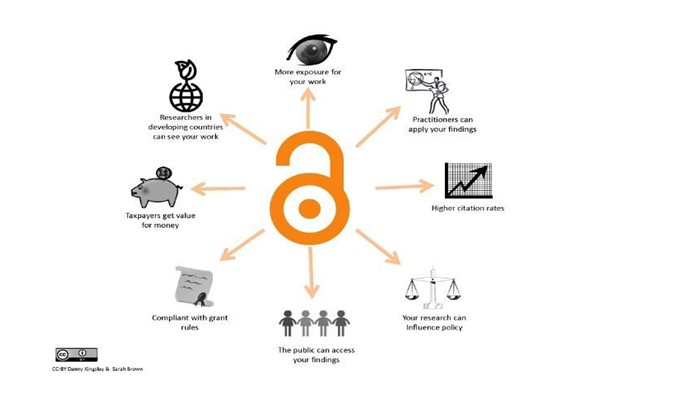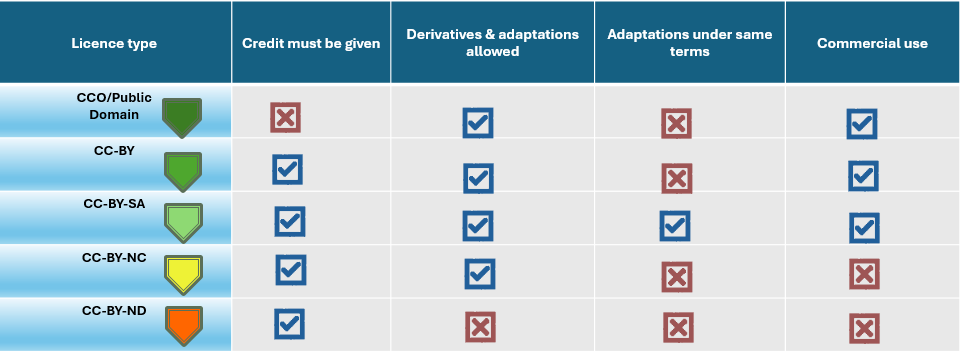'Open Access Publishing' refers to a publishing model that makes scholarly research freely available to the public online. It allows anyone, anywhere, to access, read and reuse scholarly articles and research outputs, e.g. data, without financial or legal restrictions. It promotes greater dissemination of knowledge, increases the visibility and impact of research, and fosters collaboration and innovation within the research community.
Open access publishing can take various forms, including open access journals, repositories, and platforms, and it is often mandated by funding agencies and research performing organisations. TU Dublin has an Open Access to Publications Policy, and you are required to comply with this policy, in addition to any funder requirements.
1. Publish in Open Access Journals.
The TU Dublin Open Access Policy states that "Researchers may publish where they feel is most appropriate. However, researchers should be aware of the current move to open access globally and are encouraged to use the new models for open access publishing including high quality open access publishers who do not charge open access publication fees."
To check a journal’s open access policy, you can use Sherpa Romeo. Sherpa Romeo is an online service that aggregates and presents publisher and journal open access policies from around the world. It is a quick and easy way to find out if the journal that you are thinking of publishing in has an open access policy.
Contact the Open Research Support Unit for any queries.
2. Deposit a copy of your manuscript in the institutional repository, ARROW.
As a researcher working in TU Dublin, you are required to submit a copy of your research output(s) to the Arrow. The TU Dublin Open Access Policy states:
1. All researchers must lodge the final draft version of their article in the institutional repository Arrow upon acceptance by a journal. Alternatively, they must lodge the published version if it is available as open access.
2. Researchers must lodge in the institutional repository Arrow book chapters, reports, conference proceedings and other formats they consider appropriate for the promotion and exposure of their work.
For support please contact our Open Scholarship Librarian, aisling.coyne@tudublin.ie.
3. Article Processing Charges
An Article Processing Charge (APC) is a one-time fee paid by researchers, to publishers, to make a research article immediately and freely available to anyone online, without subscription. By paying this fee, your research becomes open access at the point of publication, accessible to anyone with an internet connection through the publisher's website.
This payment is required after your manuscript is accepted but before it is published and are charged to cover the costs related to the editorial process, peer review, production, hosting, and dissemination of the article.
Many open access journals do not charge APCs, so publishing options are available without this barrier.
The Directory of Open Access Journals provides a comprehensive list of over 11,000 well-regarded journals and lists the APC cost, if any.
If the journal you wish to publish in charges APCs, there are a number of ways this fee can be paid:
- Directly by the author
- From research funding (usually prosepective publishing costs must be agreed at the proposal stage)
- Through the IReL consortium. TU Dublin is a member of IReL (Irish Research eLibrary), and through this membership, we have publication agreements with many of the larger publishers. More information is available here.
TU Dublin generally does not support the payment of APCs outside of these methods.

-
Increased visibility and impact: Open access publishing makes research freely available to anyone, which can lead to greater visibility and citation rates. Researchers can reach a wider audience, thereby increasing the potential impact of their work. Open Access expands the number of potential contributors to research from just those at institutions wealthy enough to afford journal subscriptions to anyone with an internet connection.
-
Compliance with Funding Mandates: Many funding agencies and institutions require researchers to make their publications openly accessible to the public as a condition of funding. Open access publishing enables researchers to comply with these mandates easily, ensuring that their work reaches the widest possible audience and maximizes the return on investment for funders and taxpayers.
-
Preservation and Long-Term Accessibility: Open access journals often utilize digital repositories and preservation mechanisms to ensure the long-term accessibility and archiving of published articles. This helps to safeguard research outputs and mitigates the risk of loss or deterioration associated with traditional print-based publishing models.
-
Equity and Inclusivity: Open access publishing promotes equity and inclusivity by democratizing access to knowledge regardless of geographic location, institutional affiliation, or financial resources. It reduces disparities in information access, enables researchers from diverse backgrounds to participate more fully in scholarly discourse, and supports global efforts to address societal challenges through collaborative research and knowledge sharing.
In short, even the best ideas remain just that until they are shared, until they can be utilised by others. The more people that can access and build upon the latest research, the more valuable that research becomes and the more likely we are to benefit as a society.
Creative Commons Licences provide a legal means to grant copyright permissions to a publicly available work, while ensuring proper attribution (citation). They provide a simple and standardized way to give your permission to share and use your work on conditions which you choose.
There are a number of CC licences available, and a check list here to help you determine the best licence for your work.

Additional Resources:

